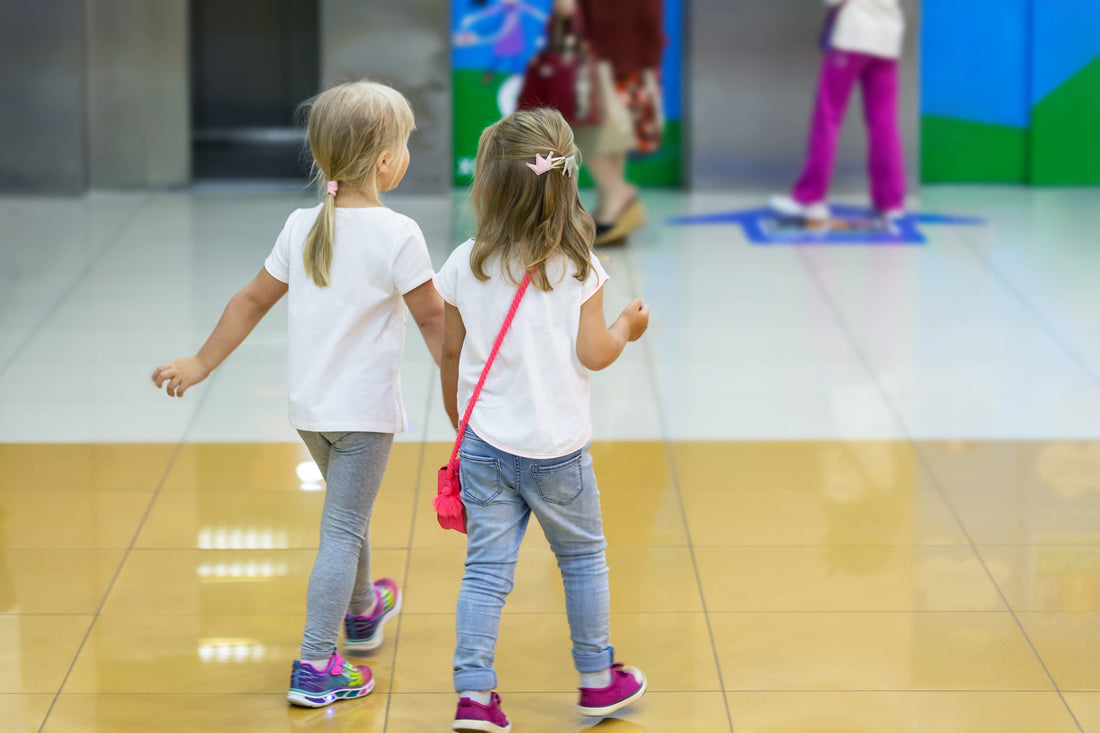
Tips On How to Help Your Toddler Make Friends
Share
Friendships made during the formative years of one’s life are very important. How many of us are still in touch with our first friends? The answer would be yes for most of us if not all of us. Apart from bringing back fond memories, childhood friendships have a lasting impact on the growth and development of every child. Together they are a strong support system, boost each other’s self-esteem, learn new things or simply have lots of fun.
However, not all kids are social butterflies. Some children may find it difficult to adjust or communicate because of their language skills. According to What To Expect, “Their still-developing language skills make it hard to strike up a conversation, even with someone their size. Plus, until age two kids are still in the “parallel play” mode, which means they play along-side each other without interacting. Not exactly the best way to make friends.” So as parents you can’t make friends for them but invest a little time to ensure your child is getting along with kids his age with these relevant tips.
Break the Ice for Your Child
Toddlers are full of energy and find no harm in playing all by themselves. And most toddlers are shy to leave their comfort zone and approach a kid to strike a conversation or play with them. But you can create opportunities for your child to interact and make new friends by arranging a playdate. Keep the playdate simple with less than five children to help your child create an intimate bond than a party with too many unfamiliar faces. Your child will find it easier to mingle with children they see regularly and will show a positive attitude towards them. Invite the mothers of the children over to bond with you to guide your child on how to socialize with her new friends.
Make It A Fun and Fair Affair
Parents while arranging a play date be very mindful of creating a happy experience, so that your child looks forward to such activities. Ensure that all the children play in harmony with enough toys and activities like costumes, toys, colors, etc. to avoid fights. Ensure each child is occupied and having a good time. If the playdate is at your home, ensure the place is childproofed completely as there will be more than one child to look out for. Prepare fun snacks and drinks to indulge the children amidst all the games and activities. If your toddler breaks into a fight divert their attention onto other things without scolding them or making it a big deal.
No Great Expectations
You can play a big role in helping your child find a friend. But post that it’s up to the child to make connections or not. So, let it take its time to blossom naturally. Don’t be too eager and force your intentions on to your child. Burdening them with your idea of socialization can have a negative impact. So instead of asking them to be more social or make more friends, figure out a way to engage them in social situations. If a playdate doesn’t work out, move on and find new possible friends for your child.
Communicate with your Child
Despite your busy schedules talk and listen to your child. Communicating well with your child and sharing the events of the day will be a great socializing exercise. The exercise will boost their confidence and allow them to strike a conversation with the people around them without any inhibition. Guide them on how to hone their social behavior whenever they lack the ability to tackle any uncomfortable situations. For instance, if your child gets into a squabble about a toy with another child, teach them to share. But allow your child to naturally react to the situation without intervening too much to allow them to navigate their way through the situation.
Engaging them in Group Activities and Games
Studies conducted by The National Center for Biotechnology Information suggests that children who are introduced to group activities or games get along better with other kids. The idea of working towards a common goal helps them bond and naturally hold the best interest of each other in mind. In a group sport, children don’t behave unpleasantly with each other making it an ideal situation to make friends. While competitive games lead to conflict or less cooperation making it a negative experience for your child. So, keep your child away from such activities until they develop their social skills and are comfortable in handling competition like a sport.
Monitoring your child’s social life will help them effectively socialize with their friends. As children learn from their parents first, set good examples of maintaining a good friendship. However, avoid hovering over your child’s space and let them make independent decisions when it comes to their peer group.
